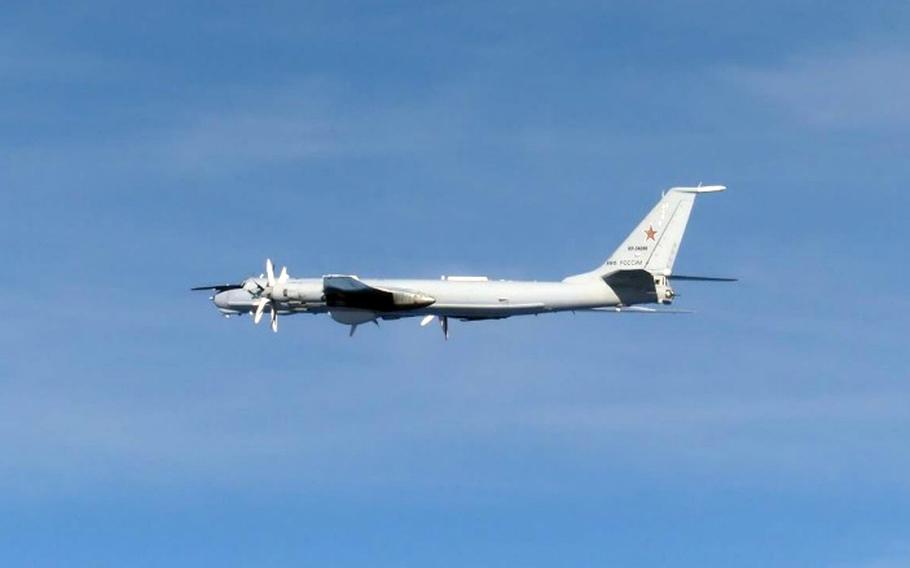
A Russian Tu-124 patrol aircraft flies around Japanese territory, Thursday, Sept. 12, 2024. (Japan's Ministry of Defense)
TOKYO — A pair of Russian patrol aircraft circled Japan’s four main islands Thursday for the first time in five years, according to Japan’s military the same day.
The Tu-124 patrol planes flew a route that spanned from Okinawa in the south to Hokkaido in the north, according to a statement from Japan’s Joint Staff.
The aircraft didn’t violate Japan’s airspace, but they did pass over the disputed northern territories, a Joint Staff spokesman said by phone Friday.
The northern territories comprise four islands north of Hokkaido claimed by Japan but occupied by the Soviet Union in 1945 and still controlled by Russia.
It was the first time Russian planes had flown around the Japan archipelago since 2019, the spokesman said. Some Japanese government officials may speak to the media only on condition of anonymity.
The aircraft traveled south off the coast of Oki Island in Shimane prefecture, flew between Okinawa and Miyako Island and over the Pacific Ocean, the Joint Staff statement said.
Japan Air Self-Defense Force fighters scrambled to monitor the planes, the statement said.
Japanese fighters also scrambled Aug. 26 to intercept a Chinese Y-9 surveillance plane that flew into Japanese airspace south of Kyushu, the first such incursion by a Chinese military aircraft.
In July, Moscow sent a pair of missile-armed, long-range Tu-95MS Bear-H bombers on a 10-hour training flight between Japan and South Korea.
It is not clear if Thursday’s patrol flight was connected to the Ocean 24 exercise by Russian and Chinese forces in the Sea of Japan, which began Tuesday and runs until Monday, according to the Joint Staff statement.
The drills span the Pacific and Arctic oceans, the Mediterranean, Caspian and Baltic seas, according to a Russian Defense Ministry statement issued at the start of the training. Ocean 24 involves over 400 warships, submarines and support vessels, more than 120 planes and helicopters and 90,000 troops.
The Russian flight around Japan is intended as a show of force, James Brown, an international affairs expert at Temple University’s Japan campus, said by email Friday.
The message is intended for two audiences, he wrote.
“The first is Japan,” he said. “Moscow wants to show the Japanese that their support for Ukraine and sanctions on Russia come at a cost.”
Russia may hope that the flight will disempower hawkish Japanese politicians, but it seems more likely that intimidation will strengthen their hand instead, Brown said.
“The second audience is China,” he said. “Putin is desperate to show Xi (Jinping, the Chinese president) that despite the invasion of Ukraine, Russia remains a force in East Asia. That is a principal goal of the enormous Russian naval drills that are underway.”